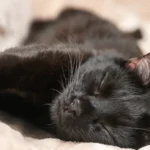Finding the perfect cat breed for your family is a big decision to make. There are different breeds that have different characteristics, needs, and personalities, so selecting the right breed to get the best match ensures that all lifestyles and preferences of your family members are satisfied. This guideline will help you take the best cat into your care.
Get to know what your family needs
Lifestyle Considerations
Before you delve into the specific cat breeds, however, you need to evaluate your family’s lifestyle:
1. Activity Level: Is your family active, and does it prefer to play with pets? Or does it like a more laid-back and low-energy environment? High-energy breeds like the Bengal or Abyssinian will thrive in an active home, while more low-key breeds like the British Shorthair or Ragdoll are best for quieter households.
2. Time: Consider the time you have available for the cat, as some breeds—especially long-haired cats—need much grooming and attention, while others are independent and need little interaction.
3. Allergies: If a family member is allergic to something, then hypoallergenic breeds are there to be considered. No breed of cat can be free of allergens at all, but some do tend to produce a low amount of them, such as the Sphynx, Balinese, and Siberian.
Space Considerations
Another important factor is the size of your living space:
Housing: Apartment, townhouse, or big house? Breeds such as American Shorthair or Russian Blue can adapt to small spaces. Large, active breeds like Maine Coon and Savannah might need more room to go in and play around.
Defining with Cat Breeds
Now that you have a better idea of what your family needs, we can look at some popular breeds and their characteristics.
Maine coon
Temperament: friendly, social; good with children and other pets.
Activity Level: Moderate. Enjoys play but is also content to chill.
Grooming: The fur is long and requires regular care.
Space: Adaptable but enjoys larger spaces.
Maine Coons are usually adored for having a tender giant cat personality; they are not aggressive or overly demanding and get along with children, other pets, and strangers.
Ragdoll
Temperament: Calm, gentle, and very affectionate.
Activity Level: Light to moderate.
Grooming: Low to moderate shedding.
Space: Adjustable to all life situations.
Ragdolls are the perfect breed for the family that just wants a chill, loving cat. Extremely docile, ragdolls actually like being held and cuddled.
Siamese
Description: The temperament is vocal, social, and highly interactive.
Activity Level: High. Needs plenty of stimulation and engagement.
Grooming: Low grooming needs.
Space: Thrives in all kinds of apartments and larger homes.
Siamese cats would be best suited for a home where people can give them much-needed attention and interaction. They happen to be social cats in nature and create very strong bonds with their owners.
British Shorthair
Temperament: Independent, calm, and affectionate.
Activity Level: Low to moderate.
Grooming: Low grooming needs.
Space: Adaptable to every kind of life space.
British Shorthairs are perfect for families looking for a low-maintenance, affectionate cat. They are independent but love human families.
Bengal
Temperament: Active, playful, and intelligent.
Exercise Level: High. The breed needs exercise daily; ideally, it should be at least.
Grooming: This breed has low.
Space: More space is required to wander around and play.
Bengals are great for active families since they actually can match that energy. They are playful and very much like toys and interactive games.
Steps in selecting the right breed
Research
Start by reading about different breeds of cats. Books, reliable websites, breeder associations—the information sources are many. Research breed characteristics, usual health problems, and care requirements.
See The Cat Shows and The Cat Breeders
Then, the visits to cat shows or breeders will give you a chance to look at all these breeds in reality. Attend cat shows, visit the batteries, and see what’s going on, with different breeds of cats’ behavior. Ask any breeder how he views his cats in terms of temperament and care.
Consult a Vet
A vet can advise appropriately on which breed fits the family. They will also provide the possible health challenges one may face and the long-term care to give the varied breeds.
Consider Adopting Remember, do not leave out the thought of getting a cat from a shelter or rescue organization. Many cats, mixed breeds included, are out there wanting a good home. In many cases, shelter personnel can help you find a good match for your family’s lifestyle.
Common Family-Friendly Breeds
To help you narrow down your options, here is a quick overview of some popular family-friendly cat breeds:
Maine Coon: They are gentle, friendly, and great with children and other pets.
Ragdoll: Large cats but with a very gentle, amiable character.
Siamese: Energetic and social, these are good cats for a family able to attend to their high demands.
British Shorthair: Loyal yet independent; the breed is just perfect for families that have a more relaxed life.
Bengal: Playful and active, Bengals are definitely an ideal choice for families that like to interact and play with pets.
Final Considerations
Health Concerns Various breeds have variable health predispositions. Look up common health issues found within the breeds that you are interested in. For example, Persian cats may tend to have respiratory issues because of their flat faces and Siamese cats might have dental issues.
Lifespan Consider the average lifespan of the breed. Most cats live 12 to 15 years, but some breeds can live into their 20s if given the proper care. Be sure you’re ready for a long-term commitment.
Human Match Every cat, even of the same breed, is an individual. Meet with a few prospective cats to make sure their personality suits you. Some cats will be more outgoing, while others shy or independent.
Conclusion
Selecting a cat breed is one of the most rewarding decisions for your family life. Understand what type of lifestyle, space, and other preferences are most common in your family; these will guide you to the right breed. By visiting cat shows and breeders talking to your veterinarian, and even considering adoption, you can be sure you’ve done everything possible to find that feline friend who’s going to bring happiness and companionship into your home. Note, that having the right cat breed not only makes it fit into the routine of your family but also brightens the entire experience of living with them. Taking the time for an educated decision means securing a good, healthy relationship with your new furry family member. Happy cat hunting!










